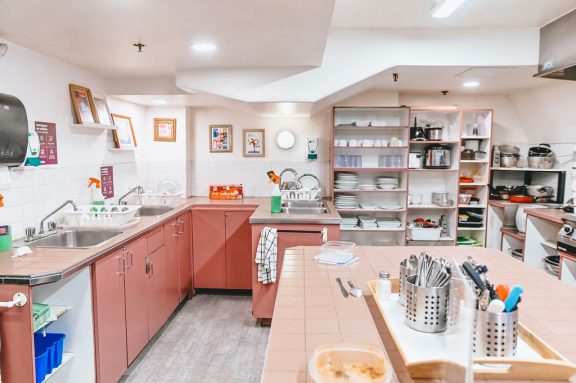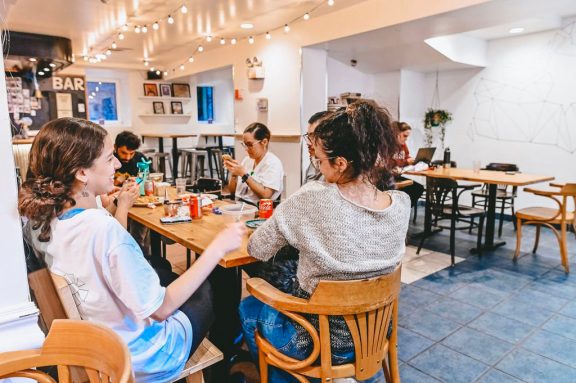10% off your next stay!
Join the Saintlo adventure and enjoy 10% off your next stay in Montreal and Ottawa.
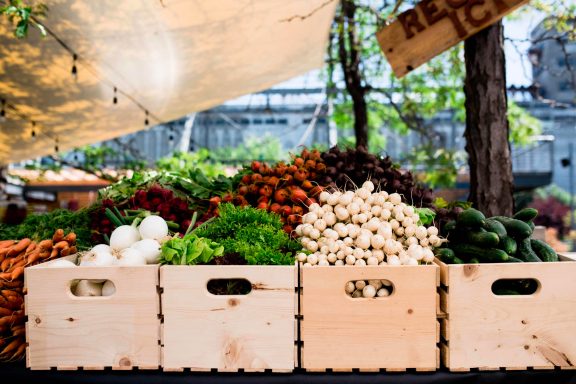
In this article:
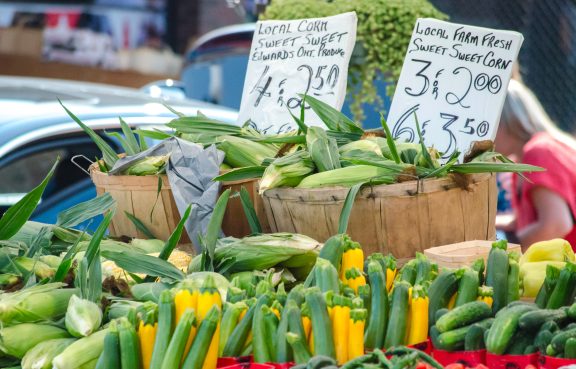
In summer, one of the best places to buy fresh produce and support the local economy is the local farmer’s market.
In Ottawa, the ByWard Market is open daily from May to November. It’s a short walk from Saintlo Ottawa Jail and has a handful of vendors selling delicious fruit and veggies.
There is also a fabulous outdoor market in Parkdale which is open daily from May to October.
In Montreal, Marché Jean-Talon and Marché Atwater are a short metro ride from Saintlo Montréal. Both markets are fantastic and open year-round. They’re worth visiting whether or not you plan to cook for yourself.
The parking lot at l’Église de la Malbaie hosts a public market from mid-June to mid-October. It’s open from 9:30 am to 1:30 pm on Saturdays and showcases some of the region’s local producers. An easy walk from the hostel in La Malbaie.
Le Marché Public Lafontaine in Rivière du Loup has similar hours and brings together a delicious array of vendors.
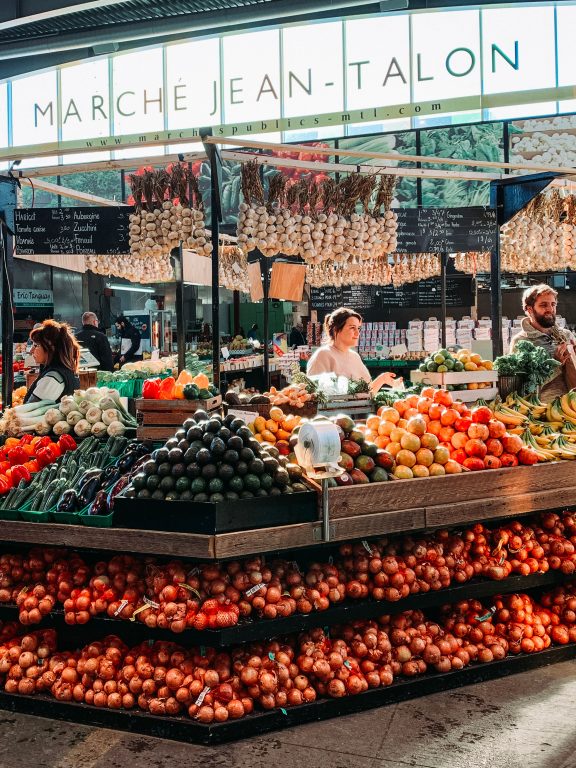
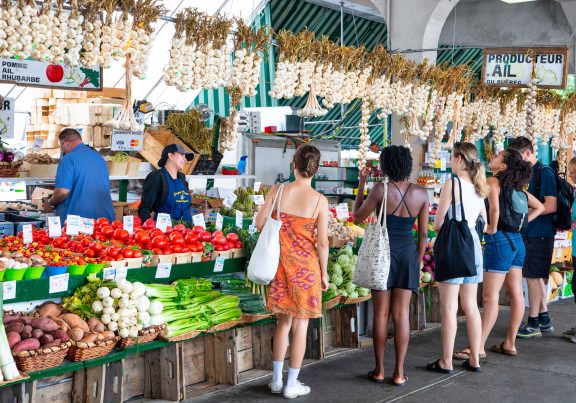
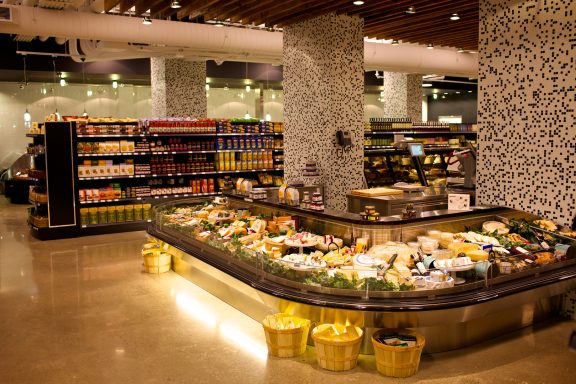
Farmers’ markets are great for fresh produce, but you’ll need to hit up a brick-and-mortar store for non-perishables, meats, dairy, etc.
In Ottawa, pop over to Tiger Giant in the ByWard Market for cheap non-perishables. The Dollar Store is another option. For full-fledged grocery stores, look for places like No Frills or Fresh Co. for affordable non-name groceries.
In Quebec, dépanneurs and épiceries will have non-perishables, milk and bread. Some have cheeses, craft beers, wine, and a small selection of fruit and vegetables as well.
Intermarchés are small grocery stores, often with decent prices. Super C and Maxi are excellent large grocery stores with budget-friendly foods.
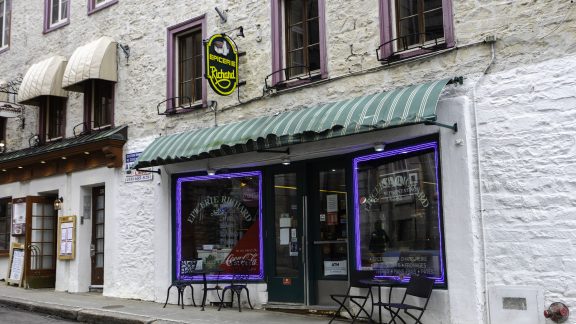
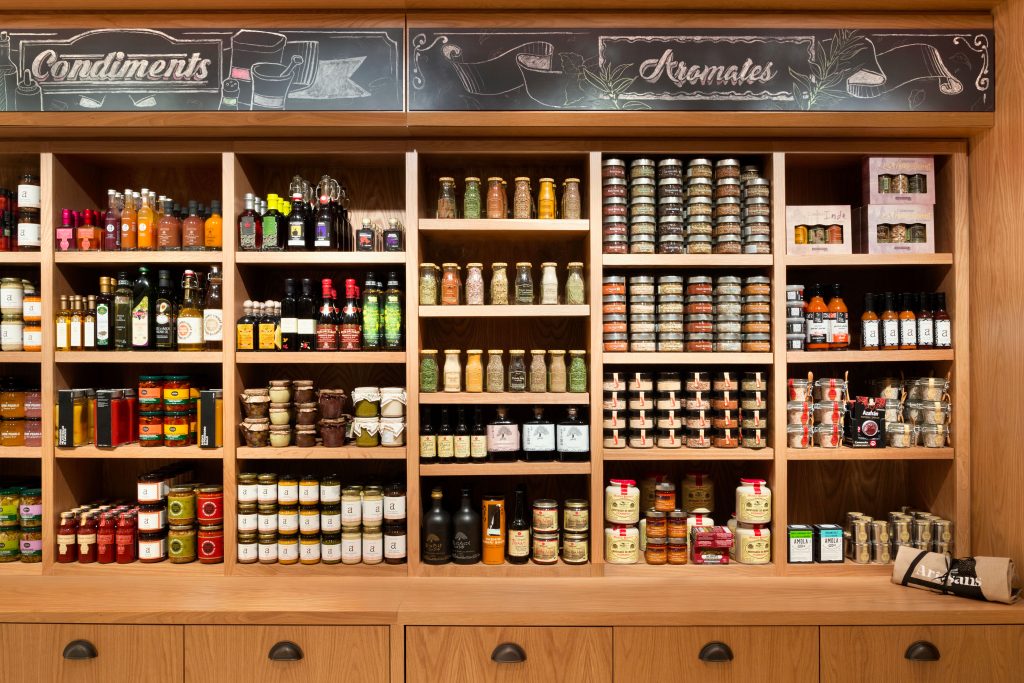
In Montréal, PA épicerie is roughly 10 to 15 minutes from the hostel, on foot. It’s a grocery store specialising in organic and natural foods, and more affordable than shopping at Avril health food stores.
Bulk Barn, when you come across one, is wonderful for buying small amounts of grains, spices, and snacks.
When checking into your hostel of choice, ask the staff for recommendations on where to buy groceries. They are always the best resource for which shops have the best products.
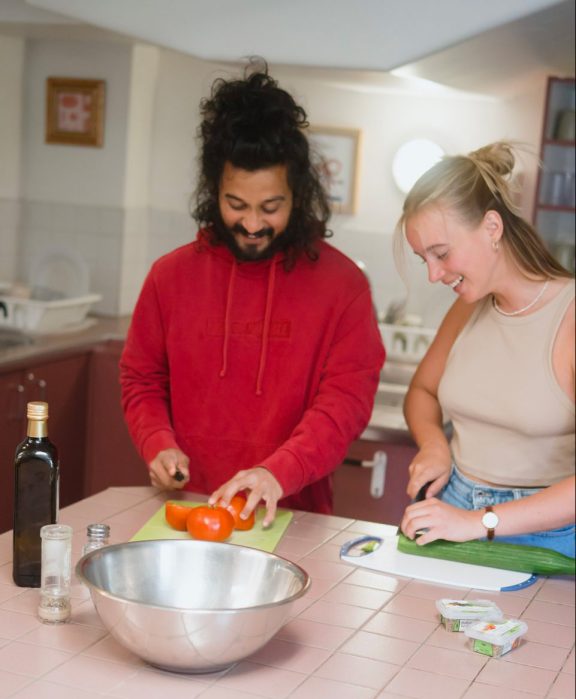
Similar to at home, cooking on a budget can be done. Packets of instant ramen or chicken bouillon cubes with hot water are sometimes a meal of choice.
Especially if you’ve busted your travel budget for a couple of days in a row. There are other ways to save money and eat healthy.
Grocery store flyers are online now, making it easy to shop the sales. Most hostels provide cooking oils, salt, pepper and some spices, so check their shelves before you shop.
Getting together with other travellers and pooling grocery money can save money as well. Buy value packs of meat and divide them evenly, or plan a meal and cook together.
Cooking a large dinner in a hostel kitchen may court disaster, but it can be done, and you’ll definitely remember it.
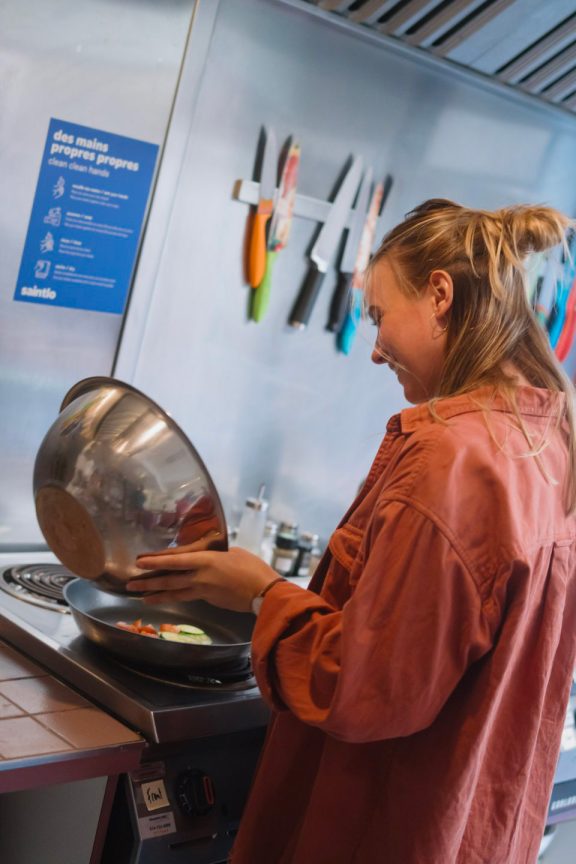

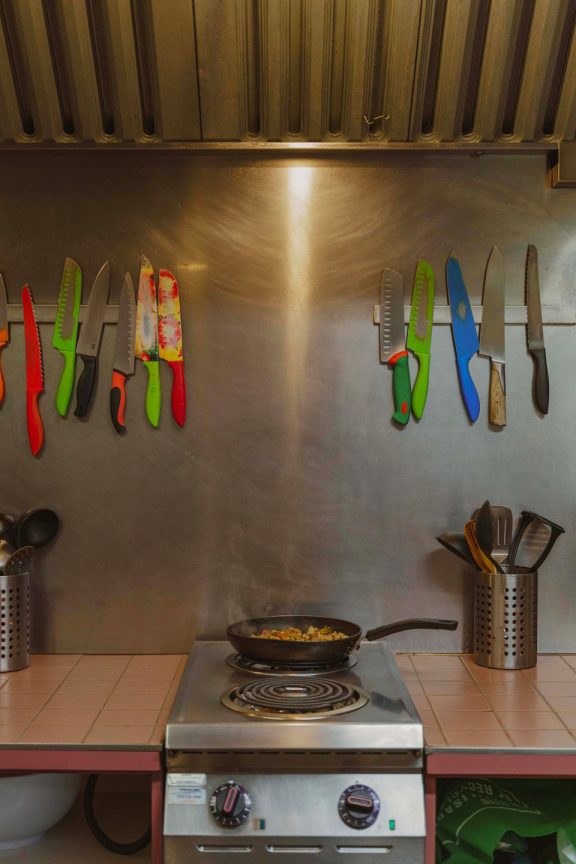
TikTok is a good place for easy recipes which can be duplicated in any hostel kitchen. You can also travel with a small notebook of meal ideas to help keep you inspired.

Shakshuka is cheap, delicious, and an ideal morning-after meal. Stir fry with tofu, pita with roasted vegetables and feta, and lemony white beans with day-old bread are all affordable and filling meals.

You can find great healthy ideas on websites like Minimalist Baker, Love & Lemons, and Dishing Out Health.
*Tip: many hostels offer a free breakfast with toast, baked goods, juice, coffee and some fresh fruit. It’s free, take advantage of it!

Kitchens, by nature, are gathering places, and cooking in a hostel can be a lot of fun. It can also be incredibly frustrating. Shared kitchens work best when everyone tidies up after themselves and behaves respectfully with others.
Most backpackers are fabulous kitchen buddies, but there will always be a few who leave dirty dishes in the sink, expired food in the fridge, or steal food. If you have specialty foodstuffs that are non-perishable, consider keeping them with the rest of your gear.
If you have food left over when it’s time to check out and move on, place it in the hostel’s communal food cupboards. Most will have designated spaces that will be filled with spices, pasta, canned foods, and other goodies people leave behind.
